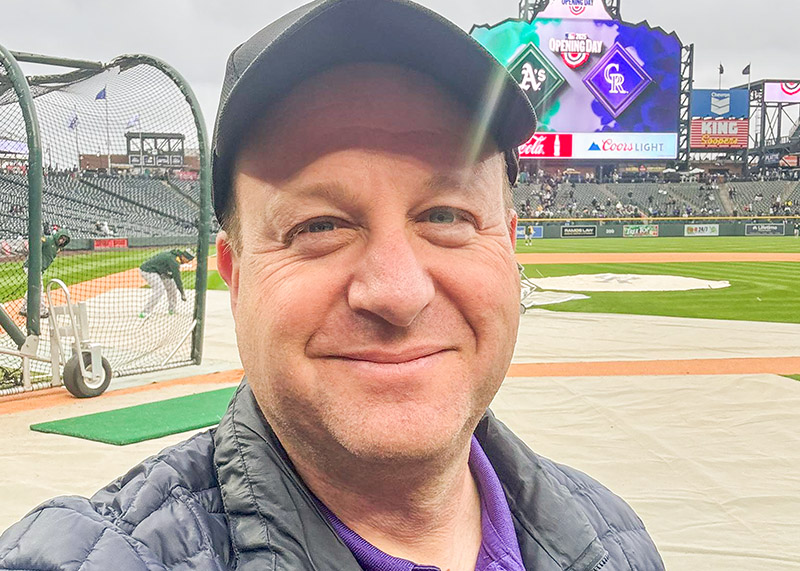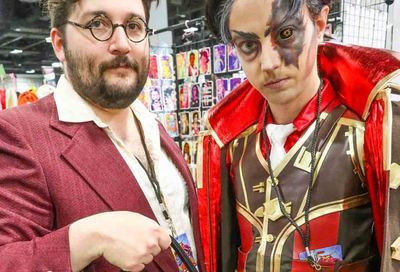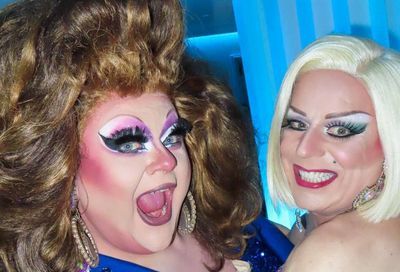Supreme Court places Virginia same-sex marriages on hold

The U.S. Supreme Court put same-sex marriages in Virginia on hold Wednesday, hours before they were set to start in the state.
The decision comes after the 4th Circuit Court of Appeals ruled 2-1 to deny a motion to put on hold a July decision issued by the same court upholding a lower court’s ruling finding Virginia’s same-sex marriage ban unconstitutional. On Aug. 14, attorneys for Prince Williams County Clerk of Court Michele McQuigg asked Chief Justice John Roberts, who oversees the 4th Circuit, to stay the decision pending appeal.
Roberts referred the matter to the full the Supreme Court, which stayed the decision pending the “timely filing” of a petition asking the high court to hear the case.
“Should the petition for a writ of certiorari be denied, this stay shall terminate automatically,” the order states. “In the event the petition for a writ of certiorari is granted, the stay shall terminate upon the sending down of the judgement of this Court.”
In their motion for a stay, McQuigg’s attorneys wrote that to deny a stay could cause other circuit courts to allow same-sex marriages to proceed as cases are appealed and “invite needless chaos and uncertainty rather than facilitate the orderly and dignified resolution of a constitutional question of enormous national importance.”
Same-sex marriage were scheduled to begin in Virginia following the issuing of a mandate by the circuit court at 8 a.m. on Aug. 21.
In February, U.S. District Court Judge Arenda L. Wright Allen found Virginia’s constitutional amendment defining marriage as between a man and a woman and banning state recognition of legal same-sex marriages performed in other jurisdictions, as well as portions of Virginia code and “any other Virginia law that bars same-sex marriage or prohibits Virginia’s recognition of lawful same-sex marriages from other jurisdictions” as unconstitutional. The decision came in the case of Bostic v. Schaefer, which was filed on behalf of two same-sex couples in July 2013 by the legal team that challenged California’s Proposition 8, including the American Foundation for Equal Rights (AFER) along with attorneys Ted Olson and David Boies. The American Civil Liberties Union (ACLU) and Lambda Legal joined the case in March on behalf of all of Virginia’s same-sex couples.
In their filing with the Supreme Court calling for the motion for a stay to be denied, attorneys for the plaintiffs argued that if a stay was granted the Supreme Court should treat McQuigg’s application for a stay as her petition to the Supreme Court to hear the case (McQuigg’s petition for a writ of certiorari is not required to be filed until Oct. 27.).
“That petition should be granted because the extraordinarily important question presented in this litigation directly affects the most basic civil rights of gay and lesbian individuals across the country and is the subject of ongoing litigation in dozens of jurisdictions. Only this Court can definitively resolve that issue and put a swift and immediate end to the denial of gay and lesbian Americans’ fundamental right to marry,” the filing stated. “Treating Clerk McQuigg’s Application as a petition for a writ of certiorari will hasten this Court’s resolution of the case and minimize the ongoing, daily irreparable injury that Plaintiffs — and tens of thousands of other gay men and women — will continue to sustain each day that a stay remains in place.”
Although plaintiffs in the case had filed motions urging the Supreme Court to reject the stay, Virginia Attorney General Mark Herring concurred with McQuigg’s motion that a stay should be issued. Herring, a Democrat who opposes Virginia’s same-sex marriage ban, argued that “a stay is warranted in light of the negative impact on Virginia children, families, and businesses if the Supreme Court eventually rules against marriage equality and forces an unwinding of Virginians’ marriages, adoptions, inheritances, or workplace benefits.”
Earlier this month Herring asked the Supreme Court to hear the case. Attorneys for the plaintiffs announced Wednesday that, in light of the stay, they intend to file a response in support of Herring’s petition asking the Supreme Court to take the case (generally the winners of a case do not appeal).
“Never before have federal courts across this country so swiftly, convincingly, and unanimously come to the same conclusion on an imperative constitutional question as they have when presented with the issue of marriage equality,” said lead co-counsel David Boies in a statement. “The federal court system agrees, the majority of Americans agree, and the President of the United States agrees that it is time this country treats its same-sex couples and their children just the same as all other loving families. We are confident that when the Supreme Court reviews the Bostic case, it too will agree and end the flagrant injustice of segregating Americans based on sexual orientation.”

Support Metro Weekly’s Journalism
These are challenging times for news organizations. And yet it’s crucial we stay active and provide vital resources and information to both our local readers and the world. So won’t you please take a moment and consider supporting Metro Weekly with a membership? For as little as $5 a month, you can help ensure Metro Weekly magazine and MetroWeekly.com remain free, viable resources as we provide the best, most diverse, culturally-resonant LGBTQ coverage in both the D.C. region and around the world. Memberships come with exclusive perks and discounts, your own personal digital delivery of each week’s magazine (and an archive), access to our Member's Lounge when it launches this fall, and exclusive members-only items like Metro Weekly Membership Mugs and Tote Bags! Check out all our membership levels here and please join us today!



















You must be logged in to post a comment.